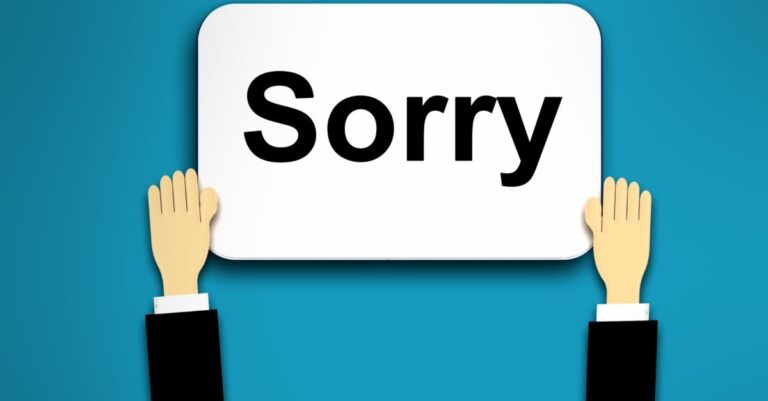My students regularly teach me about the power of an apology. Most recently, it came up with while I was monitoring hallways at school yesterday. Francisco*, one of my high school students, came up to me to request that I remove a detention he just received. Francisco explained that a teacher had assigned Francisco that detention because Francisco walked away from the teacher in the middle of a conversation and left the lunchroom without a pass. The teacher told Francisco he earned the detention for being disrespectful. Francisco was adamant that he didn’t deserve the detention because he didn’t mean to be disrespectful to the teacher by walking away from the him.
When I asked Francisco if he had spoken to the teacher who assigned him the detention, Francisco told me he did but the teacher didn’t change anything. Francisco said he told the teacher it was unfair and that it should be removed because he wasn’t being disrespectful. Since the teacher didn’t do anything, Francisco decided to come to me to get it changed. I told Francisco that I don’t remove detentions that teachers assign, but that I could help him problem solve the situation.
There is Power in an Apology
The first question I asked him took him aback. “Did you apologize?” “No…” he replied after initial hesitation.
“Did you mean to be rude or disrespectful to him?” I asked and he replied with another “No.” “Then, it’s time to apologize,” I stated. Immediately after speaking to me, Francisco went to speak to the teacher and apologized to him for coming across as rude. The teacher appreciated Francisco’s candidness and took away the detention.
Aligning Through an Apology
That is the power of an apology. It allows two individuals who were speaking “different languages” to get on the same page. When I spoke to Francisco, it was clear there was a disconnect between the individuals. The teacher believed the student was being purposely disrespectful while the student read the situation in a completely different manner. By apologizing, Francisco was admitting that his actions could have been misconstrued and helped provide clarity on what happened from his perspective.
I can’t tell you how many times I have found myself in situations like this with both students and staff members; where they aren’t willing to simply come forward and say, “I’m sorry.” Sometimes, people feel that apologies are an admission of guilt, when they are so much more than that. Apologies are evidence of humanity. They allow others to see that you aren’t infallible and are willing to admit your mistakes.
*The student’s name has been changed to protect his/her privacy.



